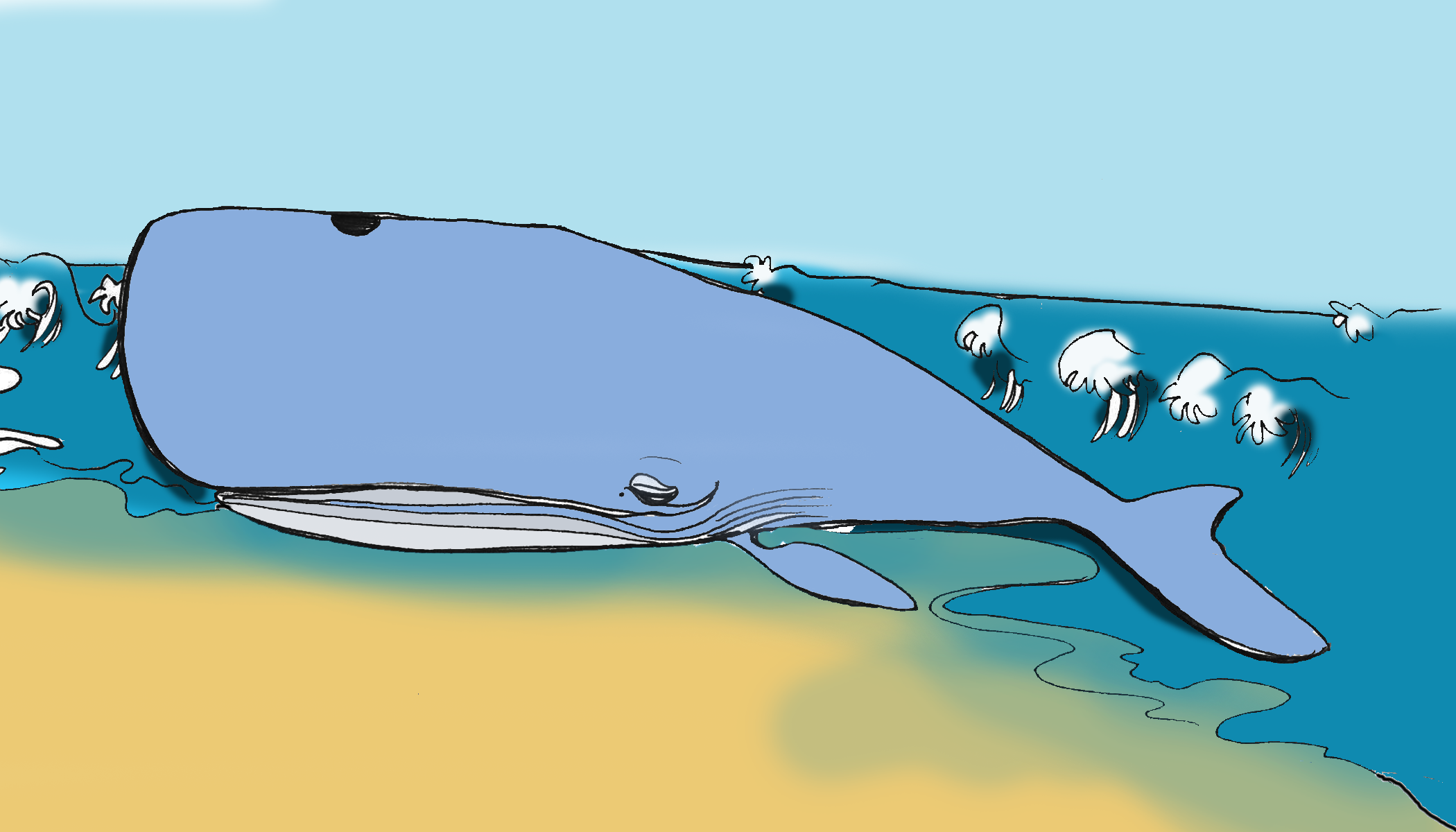Imagine waking up one warm Sunday morning to go to the beach. The sound of the waves fill the air, sandcastles litter the shore and just out of the corner of your eye … you see a beached whale.
That was the scene on Feb. 12 when a juvenile humpback whale washed ashore in Virginia Beach near 80th Street. The Virginia Aquarium & Marine Science Center estimated that the whale was 2 to 4 years old and weighed 13,000-16,000 pounds. Propeller wounds were found on the animal.
Dr. Alexander Costidis, the stranding response team coordinator for the aquarium, said the whale was originally reported on Feb. 11 off Cape Henry, just inside the Chesapeake Bay.
“Throughout the day we attempted, unsuccessfully, to get local assets to tow the carcass to a beach for us,” Costidis said. “Additional sightings showed the carcass drifting out of the bay and headed south rapidly.”
Before nightfall, the aquarium deployed a team to Rudee Inlet where the team took tissue samples and photographs of the propeller wounds on the carcass. The whale then grounded on the Oceanfront overnight, according to Costidis.
Although scientists from the aquarium found multiple wounds on the humpback whale, a true cause of death cannot be established until all lab reports are completed, Costidis said.
“Our findings from the internal examination are strongly supportive of an antemortem vessel interaction. We are quite confident the whale died due to getting struck by a very large propeller,” Costidis said.
Once the autopsy was completed, the whale was cut up and buried near the dunes on the beach. Costidis said the preferred disposal method is burial.
This is not the first beached whale that the Virginia Aquarium & Marine Science Center has had to deal with. They normally see one beached whale every year, according to the aquarium. However, this month saw three beached whales in the span of 10 days.
The aquarium does not know exactly why three separate whales were killed by vessels in such a short period of time, but their staff does have their theories. The frequent vessel traffic in the bay waters could be a factor in determining the cause for these whale deaths, but the aquarium isn’t ruling anything out.
“There is some suggestion that the whales are using the shipping channels quite a bit,” Costidis said. “If that is the case, we assume that their prey schools are using the deeper waters of the shipping channels and the whales are just following, but there are likely numerous reasons.”
Justin Smith
jrsmith2@vwc.edu
(Photo: Val Miller | Marlin Chronicle)


